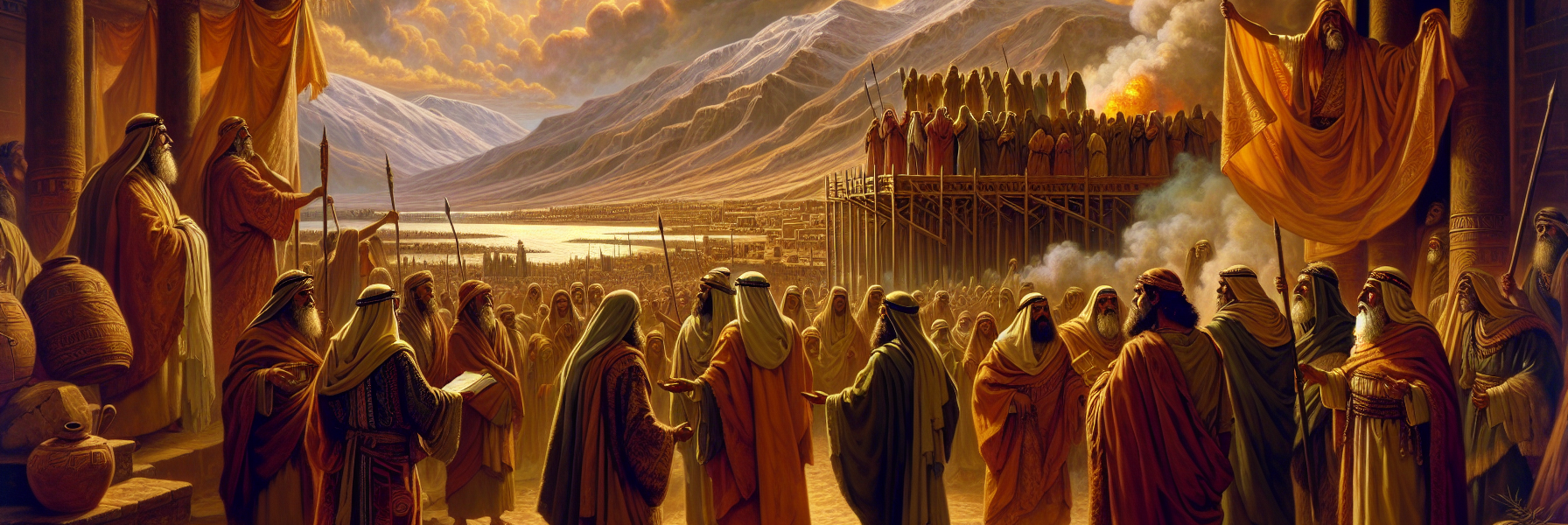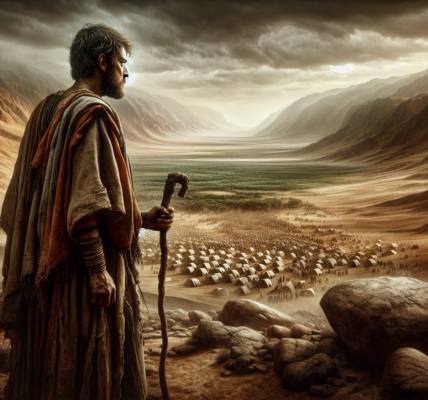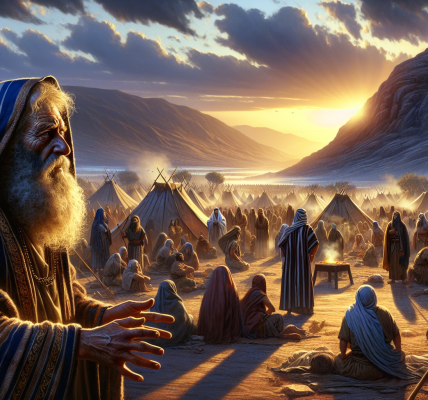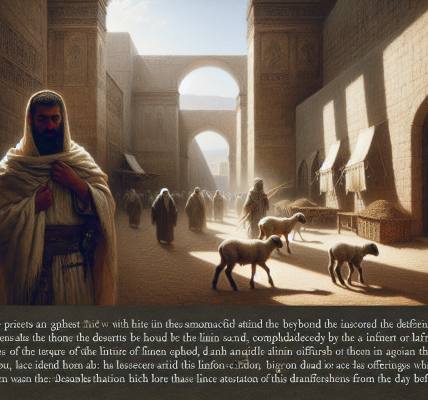**A Call to True Justice and Mercy: The Story of Zechariah’s Warning**
In the fourth year of King Darius’s reign, when the land of Judah was still rebuilding from the ruins of exile, the word of the Lord came to the prophet Zechariah. It was the ninth month, the month of Kislev, when the winds grew cold and the people prepared for the rains. The Lord’s message burned in Zechariah’s heart, for it was a word of both rebuke and hope—a reminder of what truly pleased the Almighty.
### **The Delegation from Bethel**
One day, a delegation arrived in Jerusalem from the town of Bethel. Among them were Sharezer and Regem-Melek, men of standing, sent by their people to seek the Lord’s favor. They came before the priests of the house of the Lord and the prophets, including Zechariah, with a solemn question:
*”Should we mourn and fast in the fifth month, as we have done for so many years?”*
For decades, the people had observed fasts in remembrance of Jerusalem’s destruction. The fifth month marked the burning of the Temple by Nebuchadnezzar’s armies, and the seventh month recalled the murder of Gedaliah, the governor left behind by Babylon. These fasts had become traditions, passed down through generations in exile. Now that the exiles had returned and the Temple was being rebuilt, they wondered—were these rituals still necessary?
### **The Lord’s Answer Through Zechariah**
The word of the Lord came to Zechariah, not just for the delegation but for all the people of the land. The prophet stood before them, his voice steady yet filled with divine urgency.
*”Ask all the people of the land and the priests: When you fasted and mourned in the fifth and seventh months for these seventy years, was it really for me that you fasted? And when you ate and drank, were you not eating and drinking for yourselves?”*
The question struck deep. Their fasting had become routine, a hollow observance rather than a true turning of the heart. They went through the motions, but their lives did not reflect the justice and mercy God demanded.
### **A Reminder of the Past**
Zechariah’s voice grew firmer as he recounted the words of the earlier prophets, those who had spoken before the exile, when Jerusalem was still standing.
*”This is what the Lord proclaimed through the prophets of old, when Jerusalem was inhabited and prosperous, and her surrounding cities, the Negev and the western foothills, were also full of people.”*
The Lord had warned them then through His servants, saying:
*”Administer true justice; show mercy and compassion to one another. Do not oppress the widow or the fatherless, the foreigner or the poor. Do not plot evil against each other in your hearts.”*
But they had refused to listen. They turned a deaf ear, hardened their hearts, and closed their ears to the prophets. Their ancestors had resisted the Spirit of the Lord, and so the great wrath of God had come upon them.
### **The Consequences of Disobedience**
Zechariah’s words painted a vivid picture of divine judgment.
*”When I called, they did not listen. So when they called, I did not listen,”* says the Lord Almighty. *”I scattered them with a whirlwind among all the nations where they were strangers. The land they left behind became desolate, so that no one could come or go. Thus, the pleasant land was made a wasteland.”*
The ruins of Jerusalem stood as a silent witness to their disobedience. The Temple had been reduced to ashes, the streets once bustling with life now overgrown with weeds. The people had been torn from their homes, exiled to distant lands, all because they had ignored the weightier matters of the Law—justice, mercy, and faithfulness.
### **A Call to Return to Righteousness**
Now, the Lord was giving them another chance. The fasts they observed meant nothing if their hearts remained unchanged.
*”This is what the Lord Almighty says: ‘Administer true justice; show mercy and compassion to one another. Do not oppress the widow or the fatherless, the foreigner or the poor. Do not plot evil against each other.’”*
Zechariah’s words were not just a rebuke but an invitation—a call to live as God’s people truly should. The fasts were not wrong in themselves, but without righteous living, they were empty.
### **The Choice Before Them**
The prophet’s message ended with a sobering truth: the people had a choice. They could continue in the stubbornness of their ancestors, or they could heed the Lord’s voice and walk in His ways.
*”But they refused to pay attention; stubbornly they turned their backs and covered their ears. They made their hearts as hard as flint and would not listen to the law or to the words that the Lord Almighty had sent by His Spirit through the earlier prophets. So the Lord Almighty was very angry.”*
Now, the same choice lay before this generation. Would they learn from the past? Would they turn from empty ritual to true devotion—a life marked by love for God and love for neighbor?
### **The People’s Response**
The delegation from Bethel stood silent, their faces reflecting both conviction and uncertainty. The priests and the people listening felt the weight of Zechariah’s words. Some bowed their heads in repentance, while others murmured among themselves.
The prophet’s message was clear: God desired more than fasting—He desired a people who lived justly, loved mercy, and walked humbly with Him. The ruins of Jerusalem could be rebuilt, but only a transformed heart could truly restore the covenant between God and His people.
And so, the word of the Lord through Zechariah echoed through the streets of Jerusalem, a call to return, to rebuild not just walls, but lives rooted in the justice and compassion of the Almighty.
For the Lord had spoken—and His words would not return void.




